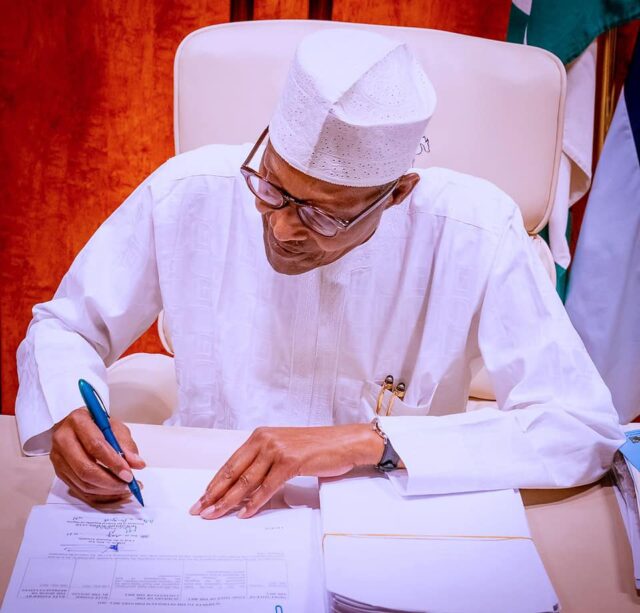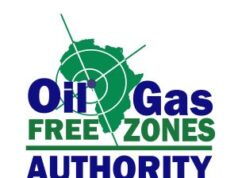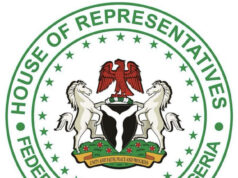Recently, the federal government sang the usual refrain of going tough on crude oil thieves in the nation’s oil and gas sector, just as the economic sabotage continues to grow in leaps and bounds. In a fresh effort to save the nation’s economy that is heavily dependent on oil, the government said it has retooled security agencies stationed in oil producing communities across the Niger Delta region.
The latest move, according to the FG, comes with the establishment of a command and control centre that monitors the entire activities of the crude oil production value chain –from drilling to shipment to designated markets.
Included in the war chest is a whistleblower policy that protects and financially rewards those who offer credible information that leads to the arrest of both the crude oil thieves and pipeline vandals.
Another strategy in the renewed effort is cementing diplomatic ties with some countries that are to ring the alarm bells whenever vessels with stolen crude from Nigeria are spotted on their shores.
These policy decisions were taken at a strategic meeting held between the Nigerian National Petroleum Company Limited (NNPC) and security agencies which focused on the need to urgently restore crude oil production to optimum level, and also to guarantee adequate security for the operators who signed new oil Production Sharing Contracts (PSCs) with the Federal Government lastweekend.
Businessandmaritimewestafrica.com also learnt from informed security sources that the Federal Government was determined, more than ever, to address the unprecedented oil theft as the unfortunate development has become a matter of life and death for the country.
All these sound very good to the ear. But this is not the first time that the federal government has come out with such a verbal declaration of war against the oil thieves. It is not the first time the government will say enough is enough, yet Nigeria’s economy continues to bleed as the criminal actors continue to do what they know best to do without adequate deterrent. Going by the numerous times, including the one early this year, when government declared war on the oil thieves and nothing changed, one would be compelled to wave aside the latest declaration as yet another insincere, powerless and hollow outburst.
Early this year, precisely in March, the federal government said it will no longer condone any form of criminality on the nation’s oil and gas facilities and installations, warning that crude oil thieves, pipeline vandals and illegal refiners have their days numbered.
The Minister of State for Petroleum Resources, Timipre Sylva, gave the warning during an on-the-spot assessment of some pipelines damaged by pipeline vandals and other criminals in some areas and communities of Rivers State. In his company were Chief of Defence Staff, Lucky lrabor, Chief Executive of the Nigerian Upstream Petroleum Regulatory Commission (NUPRC), Gbenga Komolafe, and the GMD of the Nigerian National Petroleum Company limited, Mele Kyari.
The tour came amidst the hue and cry that Nigeria’s oil production had stagnated around 1.4mbpd, in almost one year, and that Nigeria could not meet its 1.8 million barrels per day quota set by the Organisation of the Petroleum Exporting Countries (OPEC). It also followed the disclosure by the Central Bank Governor, Godwin Emefiele, that oil theft in recent time was‘unprecedented’.
The CBN governor made the declaration after a meeting of the Monetary Policy Committee. “The Monetary Policy Committee noted, with grave concern, the unprecedented rate of oil theft recorded in recent time, and its debilitating impact on government revenue and accretion to reserves,” Emefiele had said.
During the tour by the government officials, the Chief Executive Officer, Nigerian Upstream Petroleum Regulatory Commission (NUPRC), GbengaKomolafe described the acts of crude oil theft and pipeline vandalism as a national disaster. Describing activities in the sector, he said “… but what we’ve seen here are criminals, and their activities will no longer be tolerated.”
In September 2021 also, the federal government said that it would deploy operatives of the Nigerian Army, Navy and Nigeria Security and Civil DefenceCorps (NSCDC) and other security agencies in the fight against oil thieves and pipeline vandals.
Consequently, it set up an Inter-Ministerial Committee on the recovery of crude oil and illegally refined petroleum products in the creeks of the Niger Delta. The committee comprised representatives of the Defence Headquarters, ministries of Defence, Justice, Environment, the Nigeria National Petroleum Corporation (NNPC), Department of Petroleum Resources (DPR) and the National Oil Spill Detection and Response Agency (NOSDRA).
Inaugurating the committee in Abuja, the Solicitor-General of the Federation, Umar Etsu Mohammed, said the committee was put in place in line with government directive on security and economy for efficient management of recovered illegally refined petroleum products in the creeks. The committee was also charged to detect, report, evacuate, assess and ensure transparent disposal of the products with due consideration for the environment, among other terms of reference.
Despite all the committees and security agencies deployed in the fight against oil thieves, their nefarious activities have continued unabated. Does the latest move hold any promise of making any difference? Many Nigerians would rather be pessimistic. However, on closer examination of the measures that have now been adopted, one would like to give the latest declaration of war a chance.
Of the four measures said to have been adopted to fight the menace, the most appealing is the last one that says that government has cemented diplomatic ties with a host of countries that will ring the alarm bells whenever vessels with stolen crude from Nigeria are spotted on their shores. If this can work, the battle against oil thieves would have been half won. In other words, if Nigeria can, with the aid of foreign countries, track ship movements of its oil exports and be able to apprehend illegal or criminal shipments, the country will be well on the way to winning the battle against the oil thieves.
This presumption is premised on a well-founded and obvious knowledge that it is the elites and powerful Nigerians, in and out of government, that are behind the thriving oil theft business, backed or covered by the security operatives detailed to stop them. These powerful Nigerians and top security agents constitute the international syndicate that specializes in oil theft.
A few days before the meeting that threw up the latest government efforts, one of the oil giants in the nation’s oil industry, Shell Petroleum Development Company (SPDC), confirmed this when it declared that it is the country’s elite that are the force behind crude oil theft and illegal refineries in the Niger Delta region. The oil major stressed that the financial muscle, privileges and connections of these elites make it easier for them to engage in the criminal enterprise. It described oil theft as “organised crime” that involves high and experienced individuals in the society.
The company’s General Manager, Corporate Relations, Nigeria, Igo Weli, who disclosed this to newsmen during an engagement on ‘Crude Theft, Pipeline Vandalism & Illegal Refineries’ in the Niger Delta region said the perpetrators of oil theft and illegal refineries acquire staff who facilitate their operations.This goes to confirm that the real perpetrators of oil theft are big, well-connected and privileged Nigerians and not the common village oil thieves that steal oil in jerry cans.
As we had often written on this medium, government’s efforts to combat oil theft flounders because the small oil thieves are often targeted while the big time criminals are left to get away with their enormous loot. While the federal government fights small oil thieves, pipe-line vandals and cottage illegal refineries, ships laden with Nigeria’s stolen crude continue to leave Nigerian shores. Both the operators at the rigs, loading bays and the security operatives have often been indicted by investigative reports, including the big operators in the business, but nothing has ever been done.
Nigerians have been told time without number that the accurate figure of Nigeria’s crude production is not even known, since the foreign oil thieves and their Nigerian collaborators, including security operatives, appear to be the ones in control of the nation’s oil export business. But the government has continued to feign ignorance of this. Even when numerous investigative reports, both local and international, have confirmed the constant allegation, the federal government had always preferred to focus attention on village oil thieves in the Niger Delta. While this illegality cannot be condoned, one would still ask, is it the village oil thieves and the so-called “illegal” refineries that are responsible for the huge losses being incurred by Nigeria, or its inability to meet its production quota?
Nigeria’s losses to crude oil theft in the last few years have been astronomical. A report by the Nigerian Upstream Petroleum Regulatory Commission (NUPRC) and the Independent Petroleum Producers Group, has shown that from January 2021 to February 2022, Nigeria lost $3.2 billion to crude oil theft. And over $1 billion was lost in the first three months of the year. As a result of oil theft, Nigeria can no longer meet its OPEC oil production quota while many investors have been divesting from the sector. It is only the big time thieves, the international syndicate that has the capacity to inflict such staggering losses on the nation.
Since it has become clear now to government and all and sundry that oil theft will destroy the sector and dig a gaping hole in the economy, government should mean what it said this time. It should back its every word with action this time around, and should have the political will to confront the powerful Nigerians behind oil theft in the country. Up to the present moment, Nigerians believe that the government has not demonstrated enough will to tackle oil theft.
In addition, the government should address the factors that drive oil theft. These include the neglect of the oil-producing communities, the saboteurs in the sector and their foreign collaborators. The “vested interests” which security agencies claim to be “taking on” should be exposed for the fight to be more effective instead of hiding under “security reasons”.
Youth unemployment in the local communities should be taken seriously. Government should also review the oil and surveillance contracts based on performance of contractors. The local communities should be adequately mobilized and engaged in the security of oil and gas assets. Neglecting the communities and using only force to stop pipeline vandalism and the so-called illegal refineries is not likely to end the menace.










